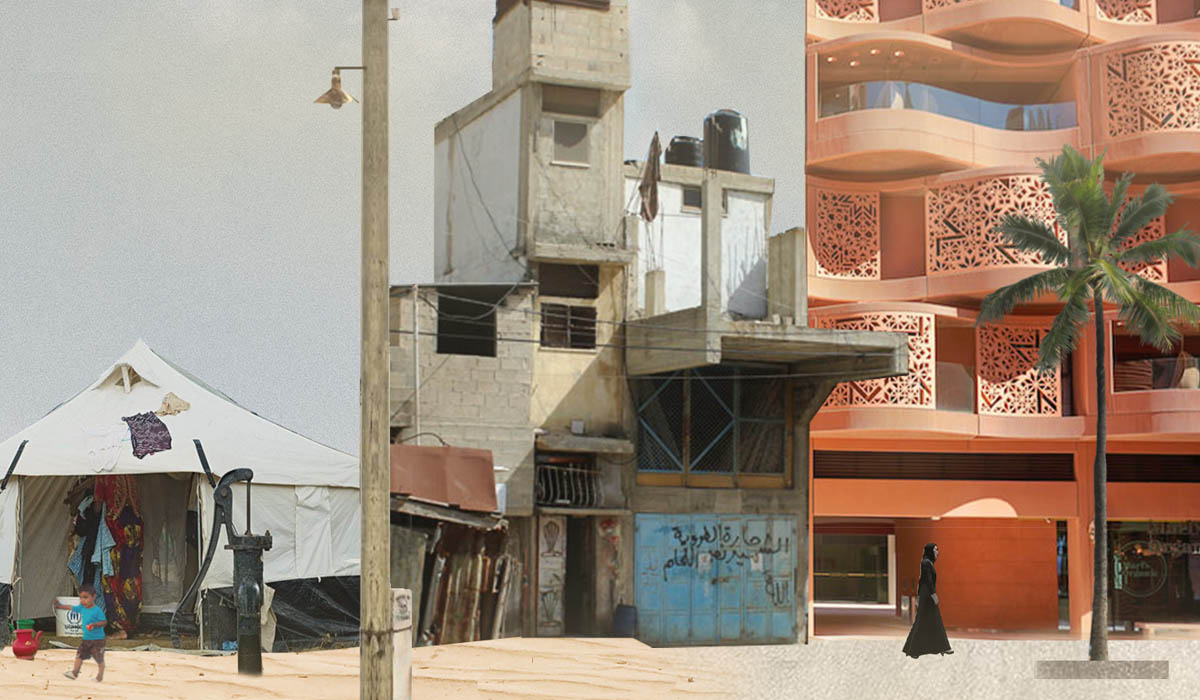Back to School with… Lena Knappers & Bram van Ooijen #3
Session #3
Strategies for climate-induced displacement and migration
The third in a series of three evenings about climate change, environmental justice and migration, with Malkit Shoshan and Esther Kokmeijer. New Date: Monday 10 February 2025.

Climate-induced migration
The United Nations International Organisation for Migration (IOM) has cited estimates of as many as 25 million to 1 billion climate migrants in the next 30 years, while other projections point to 1.4 billion by 2060.
While climate induced displacement and migration is already happening and will increase, international law currently gives no protection to those affected by the undesirable effects of climate change. Not only does a global fixation on borders as a solution to migration cause unnecessary suffering on people, it also obscures ways that seek and identify and begin to find solution to a future of more displacement and migration, a future that invites more generosity and responsibility. In the third event we will look at strategies to deal with displacement and migration in the context of a changing climate.
Together with architect and researcher Malkit Shoshan and visual artist Esther Kokmeijer, we will examine how to address regional displacement and migration, but will also look at areas near the planet’s cooler poles that might become potential places to build new villages and cities.
Malkit Shoshan will talk about humanitarian responses to climate-induced migration, using illustrations from her work at Harvard Graduate School of Design where she has been teaching a variety of courses amongst which Spatial Design Strategies for Climate Migration, and Desert Futures: Scenarios for a World of Extremes. Afterwards, Esther Kokmeijer will discuss her project Terra Nullius − Ownership and Pioneering on Ice. In this project, she explores how Antarctica has always captured our imagination—not just for its isolation, extreme natural conditions, and breathtaking serenity, but also for the possibilities offered by the "untouched" no man’s land. Although Antarctica is technically not owned by any nation, it plays an increasingly significant role on the global stage today.
About Malkit Shoshan
Malkit Shoshan is the founder and director of the architectural think tank FAST: Foundation for Achieving Seamless Territory. FAST uses research, advocacy, and design to investigate the relationship between architecture, urban planning, and human rights in conflict and post-conflict areas. Shoshan is the 2024 Senior Loeb Fellow at the Harvard Graduate School of Design and has been teaching a variety of courses there since 2016. She is also the author of Atlas of Conflict: Israel-Palestine and co-author of Village. One Land Two Systems and Platform Paradise.
About Esther Kokmeijer
Esther Kokmeijer, is an artist and explorer residing in Rotterdam and working around the globe. In her work, she mainly focuses on the interaction between human and their natural environment, finding expression in journeys, installations, interventions, photo series, documentaries, sculptures, film essays, books, and performances among others. She is the founder of Antarktikos, an annual printed journal that is solely dedicated to Antarctica and brings together art and science, co founder of the Cosmic Water Foundation and part of the art collective If Paradise Is Half As Nice.
Programme 10 February 2025
18:00 - 19:00 Doors open and dinner served
19:00 - 19:30 Introduction by Lena Knappers and Bram van Ooijen
19:30 - 20:30 Online lecture by Malkit Shoshan on humanitarian responses to climate-induced migration, focussing on the Sahel region + Q&A
20:30 - 21:00 Lecture by Esther Kokmeijer on the project ‘Terra Nullius – Ownership and Pioneering on Ice’
21:00 Drinks at the bar
This event is the third in a series of three about climate change, environmental justice and migration, curated by Lena Knappers and Bram van Ooijen. The lecture series derives from the research and design project ‘Humanity on the move’, which was part of the open call ‘designing a climate just world’, organised and subsided by the EFL Foundation. More info here.